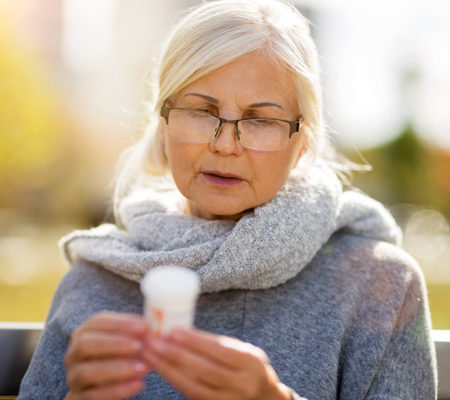Opioid abuse is an epidemic in the U.S. and around 247 Americans die every day from an opioid overdose.

Opioid use is an epidemic in the U.S. and nearly 247 Americans die every day from an overdose. How do you know someone may be using?
Opioids are a class of drugs used to reduce pain. But, they can have addiction as a side effect even when taken as prescribed, according to the Centers for Disease Control and Prevention (CDC).
So, what is an opioid addiction? And, what do you look for if you think someone close to you may have an addiction?
What is opioid addiction?
When someone has an opioid use disorder, he or she becomes physically dependent on opioids, said Meagan Pichler, manager of Community Health, Center for Community Health Advancement (CCHA) at Marshfield Clinic Health System. CCHA helps develop healthy environments that foster resilient, successful children, youth and families; serves as a catalyst for program design and development; and provides technical assistance and consultation, education and training and other resources to support community health improvement. CCHA priorities are community health improvement, like helping to address the opioid crisis and partnering with communities.
Opioid abuse symptoms can include cravings and sweating, also known as withdrawal. When a person has this physical dependence, it can be extremely hard to stop taking opioids. Their dependence can interfere with daily routines, including personal relationships or finances, according to the U.S. Department of Health and Human Services.
Three types of opioids
Prescription opioids can come from a doctor to treat moderate to severe pain. Common types of opioids used to treat pain include hydrocodone (Vicodin®), oxycodone (OxyContin®, Percocet®), oxymorphone (Opana®), morphine, codeine and fentanyl.
Fentanyl is a synthetic or chemically-made opioid for pain relief. Fentanyl and similar synthetic compounds, like carfentanil, can be 50-100 times more potent than morphine. Fentanyl is more powerful than other opioids and is approved to treat severe pain, typically for advanced-stage cancer patients.
Heroin is an illegal and highly addictive drug made from morphine, which comes from opium poppy plants. Heroin is an illegally-made opioid and its use has increased among all age groups and income levels. Some prescription opioids have effects similar to heroin. Research suggests misuse of these drugs may open the door to heroin use, according to the CDC.
Signs of opioid addiction can include:
-
- Inability to control opioid use.
- Uncontrollable cravings.
- Drowsiness.
- Changes in sleep habits.
- Weight loss.
- Frequent flu-like symptoms.
- Decreased libido.
- Lack of hygiene.
- Changes in exercise habits.
- Isolation from family or friends.
- Stealing from family, friends or businesses.
- New financial difficulties.
If you think a loved one, or even you, may have an addiction, contact your Marshfield Clinic Health System primary care provider. For more information, click on this link.
Over the past year, Marshfield Clinic Health System’s Northwoods Coalition program disseminated $350k to local substance use prevention coalitions. These funds helped address opioid misuse in their own communities.

